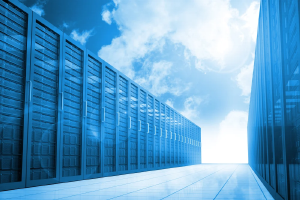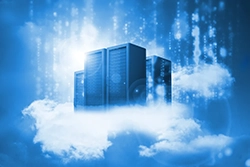Cloud Wisdom: Understanding Data Protection and Backup Options
Why Backups Are Non-Negotiable for Modern Businesses In today’s fast-paced digital world, backups are essential to ensure business continuity. Not...
3 min read
Dylan Borden
:
Jan 27, 2025 12:02:00 PM

Data loss can feel like the end of the world—especially when it’s your business at stake. Whether it’s due to hardware failure, accidental deletion, cyberattacks, or natural disasters, having a reliable backup strategy is non-negotiable. But here’s where it gets tricky: not all solutions labeled as “cloud” are created equal.
So, let’s break it down: What’s the difference between cloud storage and cloud backup software, and where does local backup fit in? Understanding these distinctions is key to choosing the best solution for your business.
Cloud storage services are designed for one primary purpose: making your files easily accessible from anywhere. Think of them as your virtual filing cabinet, syncing your data across devices so you can share, view, and edit files on the go.
Examples: SharePoint, iCloud, and Dropbox
While cloud storage is great for convenience, it’s not designed for long-term or comprehensive backup. For example:
Bottom Line: Cloud storage is perfect for everyday access and collaboration, but it won’t provide the robust protection you need for true disaster recovery.
Cloud backup software takes data storage a step further, offering a dedicated solution for safeguarding your files. Think of it as your digital insurance policy—one that keeps your data protected no matter what.
Examples: Cove Backups
Bottom Line: If your primary concern is data loss, cloud backup software is the way to go.
Local storage might seem old-school, but it’s still a valuable piece of the puzzle. With local backups, you save all your data—including file structures and applications—on physical hardware like external drives or network-attached storage (NAS).
Bottom Line: Local backups are great for quick recovery and offline access but need to be supplemented for full protection.
The answer depends on your priorities:
But why choose one when you can combine them?
A hybrid backup strategy merges cloud and local storage, giving you:
Example:
Cloud storage focuses on accessibility and sharing, while cloud backup is designed to protect and restore your data in the event of loss or damage.
Absolutely! In fact, many businesses do. Cloud storage handles daily file access, while cloud backup ensures you’re protected against larger issues like ransomware or accidental deletions.
Yes! Local backups provide fast recovery and offline access, making them a valuable part of a hybrid strategy.
Consider your needs:
Choosing between cloud storage, cloud backup, and local storage isn’t about picking a winner—it’s about finding the right balance for your business. A hybrid approach often provides the best protection and flexibility, ensuring your data is safe, accessible, and recoverable no matter what.
If you’re unsure where to start, Four Winds IT is here to guide you. Let’s craft a backup strategy that fits your unique needs.

Why Backups Are Non-Negotiable for Modern Businesses In today’s fast-paced digital world, backups are essential to ensure business continuity. Not...

In the dynamic realm of modern business, where data is the cornerstone of success, ensuring its security is not just a priority; it's a strategic...

In today’s era of Remote Work, ensuring robust Data Protection is critical. Businesses rely on tools like Microsoft 365 Business Premium and ...